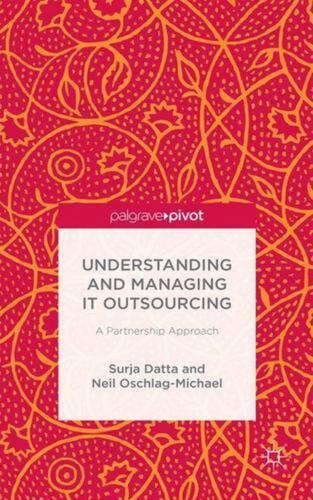Your cart is currently empty!
Tag: partnership

Fujitsu’s Partnership with Other Tech Giants: Collaborations that are Changing the Industry
Fujitsu, a leading Japanese multinational information and communication technology company, has been forging partnerships with other tech giants to drive innovation and transform the industry. These collaborations have resulted in groundbreaking solutions that are shaping the future of technology.One of Fujitsu’s key partnerships is with Microsoft, a global leader in software and services. The two companies have been working together to develop cloud-based solutions that enable businesses to harness the power of data and analytics. By integrating Fujitsu’s expertise in building and managing IT infrastructure with Microsoft’s cloud technologies, they have created cutting-edge solutions that help businesses improve their operations and drive growth.
Another significant partnership for Fujitsu is with Intel, a leading semiconductor manufacturer. Together, they have been developing innovative solutions in areas such as artificial intelligence, Internet of Things, and edge computing. By leveraging Intel’s advanced processing capabilities and Fujitsu’s expertise in system integration, they have created solutions that enable faster data processing, real-time analytics, and improved decision-making for businesses.
Fujitsu has also partnered with Salesforce, a cloud-based customer relationship management software company, to deliver enhanced customer experiences. By integrating Salesforce’s CRM platform with Fujitsu’s digital transformation services, they have helped businesses improve their customer engagement, streamline their sales processes, and drive revenue growth.
In addition to these partnerships, Fujitsu has also been collaborating with other tech giants such as Cisco, SAP, and Oracle to develop solutions in areas such as cybersecurity, data management, and enterprise resource planning. These collaborations have enabled Fujitsu to expand its offerings and provide comprehensive solutions that meet the evolving needs of businesses in today’s digital age.
Overall, Fujitsu’s partnerships with other tech giants have been instrumental in driving innovation and transforming the industry. By combining their respective strengths and expertise, these collaborations have resulted in solutions that are changing the way businesses operate and compete in the digital era. As technology continues to evolve, Fujitsu’s partnerships will play a crucial role in shaping the future of the industry and driving continued growth and success for businesses around the world.

Choosing the Perfect IT Outsourcing Partner: Key Considerations for a Successful Partnership
In today’s competitive business landscape, outsourcing IT services has become a popular choice for companies looking to streamline their operations and reduce costs. However, choosing the right outsourcing partner can be a daunting task, as the success of the partnership hinges on selecting a provider that aligns with your business goals and values. Here are some key considerations to keep in mind when selecting the perfect IT outsourcing partner for your organization:1. Industry Experience: One of the most important factors to consider when choosing an IT outsourcing partner is their industry experience. Look for a provider that has a proven track record of delivering quality IT services to companies in your industry. This will ensure that they have a deep understanding of your business needs and can provide tailored solutions that meet your specific requirements.
2. Expertise and Skillset: It’s essential to assess the expertise and skillset of the outsourcing partner’s team. Make sure that they have the necessary technical skills and certifications to handle your IT projects effectively. A provider with a team of experienced professionals will be able to deliver high-quality services and support, ensuring the success of your partnership.
3. Communication and Collaboration: Effective communication is key to a successful outsourcing partnership. Look for a provider that values transparency and open communication, and is willing to collaborate closely with your internal team. Regular updates, progress reports, and feedback sessions will help ensure that both parties are on the same page and working towards a common goal.
4. Scalability and Flexibility: As your business grows and evolves, your IT needs will also change. It’s important to choose an outsourcing partner that can scale their services to accommodate your growing requirements. Look for a provider that offers flexible service packages and can adapt to meet your changing needs over time.
5. Security and Compliance: Data security and compliance are critical considerations when outsourcing IT services. Make sure that the provider has robust security measures in place to protect your sensitive information and ensure compliance with industry regulations. A reliable outsourcing partner will prioritize data security and have policies and procedures in place to safeguard your data.
6. Cost and Value: While cost is undoubtedly an important factor when choosing an outsourcing partner, it’s essential to consider the value that the provider can offer. Look for a provider that offers competitive pricing without compromising on quality. Consider the long-term benefits and ROI of the partnership rather than just focusing on upfront costs.
Choosing the perfect IT outsourcing partner requires careful consideration and thorough research. By evaluating factors such as industry experience, expertise, communication, scalability, security, and cost, you can ensure that you select a provider that aligns with your business goals and values. A successful partnership with the right outsourcing partner can help drive innovation, improve efficiency, and ultimately, propel your business towards success.

Selecting the Best IT Outsourcing Partner: Key Considerations for a Successful Partnership
In today’s digital age, businesses are increasingly turning to IT outsourcing to stay competitive and drive innovation. Outsourcing IT services can help companies reduce costs, improve efficiency, and access specialized expertise that may not be available in-house. However, choosing the right IT outsourcing partner is crucial for a successful partnership. Here are some key considerations to keep in mind when selecting the best IT outsourcing partner for your business.1. Define Your Goals and Requirements: Before you start looking for an IT outsourcing partner, it’s important to clearly define your goals and requirements. Consider what specific IT services you need, whether it’s software development, cloud computing, cybersecurity, or helpdesk support. Make a list of your must-have features and functionalities, as well as any budgetary constraints or timeline considerations.
2. Evaluate Experience and Expertise: When choosing an IT outsourcing partner, look for a company with a proven track record of success in your industry. Check their portfolio and client testimonials to assess their experience and expertise. Consider whether they have worked on similar projects in the past and whether they have the technical skills and knowledge to meet your specific requirements.
3. Consider Communication and Collaboration: Effective communication is essential for a successful IT outsourcing partnership. Look for a partner who is responsive, transparent, and proactive in their communication. Consider whether they have a strong project management process in place, as well as tools and technologies that facilitate collaboration and remote work.
4. Assess Security and Compliance: Data security and compliance are critical considerations when outsourcing IT services. Make sure your partner has robust security measures in place to protect your sensitive information and comply with relevant regulations such as GDPR or HIPAA. Consider whether they have certifications or accreditations that demonstrate their commitment to data security and privacy.
5. Evaluate Scalability and Flexibility: As your business grows and evolves, you may need to scale up or down your IT outsourcing services. Look for a partner who can accommodate your changing needs and provide flexible solutions that can adapt to your business requirements. Consider whether they have the capacity and resources to scale up their services as needed.
6. Consider Cultural Fit and Values: A successful IT outsourcing partnership is built on mutual trust, respect, and shared values. Consider whether your potential partner aligns with your company culture and values, as well as whether they are committed to ethical business practices and corporate social responsibility. Look for a partner who is invested in your success and willing to go the extra mile to deliver exceptional service.
In conclusion, selecting the best IT outsourcing partner is a critical decision that can have a significant impact on your business success. By considering these key factors, you can ensure a successful partnership that delivers value, innovation, and competitive advantage. Take the time to research and evaluate potential partners, ask for references, and conduct thorough due diligence before making a decision. With the right partner by your side, you can leverage the power of IT outsourcing to drive growth and achieve your business goals.

Building a Successful Partnership: Key Considerations for Selecting the Right IT Outsourcing Provider
In today’s fast-paced business environment, many companies are turning to IT outsourcing as a way to streamline operations and reduce costs. However, choosing the right outsourcing provider is critical to the success of any partnership. Here are some key considerations to keep in mind when selecting an IT outsourcing provider:1. Determine your needs: Before you start looking for an outsourcing provider, it’s important to clearly define your goals and requirements. Consider what specific services you need, what your budget is, and what level of expertise you require. This will help you narrow down your options and find a provider that meets your specific needs.
2. Evaluate experience and expertise: When choosing an outsourcing provider, it’s important to look for a company with a proven track record of success in your industry. Look for providers that have experience working with companies similar to yours and have a strong reputation for delivering high-quality services. Additionally, consider the expertise of the provider’s team members and the technologies they use to ensure they can meet your needs.
3. Consider location and communication: The location of your outsourcing provider can have a big impact on the success of your partnership. Consider factors such as time zone differences, language barriers, and cultural differences when selecting a provider. It’s important to choose a provider that is easy to communicate with and can provide timely support when needed.
4. Evaluate security measures: When outsourcing your IT services, you’ll be entrusting your sensitive data and information to a third party. It’s important to ensure that the outsourcing provider has strong security measures in place to protect your data from cyber threats and breaches. Look for providers that have robust security protocols, data encryption, and regular security audits.
5. Consider scalability and flexibility: As your business grows and evolves, your IT needs may change. It’s important to choose an outsourcing provider that can scale their services to meet your changing requirements. Look for providers that offer flexible contracts, customizable services, and the ability to quickly adapt to your changing needs.
6. Evaluate cost and ROI: While cost is an important factor to consider when selecting an outsourcing provider, it’s also important to consider the return on investment (ROI) that the provider can deliver. Look for providers that offer competitive pricing, transparent pricing structures, and a clear understanding of the value they can provide to your business.
In conclusion, choosing the right IT outsourcing provider is a critical decision that can have a big impact on the success of your business. By considering these key factors and taking the time to research and evaluate potential providers, you can build a successful partnership that delivers real value to your business.

Selecting the Ideal IT Outsourcing Partner: Key Considerations for a Successful Partnership
In today’s fast-paced digital world, businesses often need to outsource their IT services in order to stay competitive and meet the demands of their customers. However, selecting the right IT outsourcing partner can be a daunting task, as there are countless options available in the market. To ensure a successful partnership, it is crucial to carefully consider several key factors before making a decision.One of the most important considerations when selecting an IT outsourcing partner is the expertise and experience of the company. It is essential to choose a partner who has a proven track record of delivering high-quality IT services and has experience working with businesses in your industry. Look for a partner who has a team of skilled professionals with the necessary technical skills and certifications to handle your specific IT needs.
Another important factor to consider is the range of services offered by the IT outsourcing partner. It is important to choose a partner who can provide a comprehensive range of services, from basic IT support and maintenance to more advanced services such as cloud computing, cybersecurity, and data analytics. This will ensure that your business has access to the expertise and resources needed to meet your IT requirements both now and in the future.
Cost is also a critical consideration when selecting an IT outsourcing partner. While it is important to find a partner who offers competitive pricing, it is equally important to consider the value that the partner can provide for your business. Look for a partner who can offer flexible pricing models and customized service packages to fit your budget and specific needs.
Communication and collaboration are key components of a successful IT outsourcing partnership. It is important to choose a partner who is responsive, transparent, and easy to communicate with. Look for a partner who is willing to work closely with your internal IT team and provide regular updates on the progress of projects and initiatives.
Finally, it is essential to consider the reputation and reliability of the IT outsourcing partner. Look for reviews and testimonials from other clients to gauge the partner’s reputation and reliability. Choose a partner who has a solid reputation for delivering high-quality services and meeting deadlines consistently.
In conclusion, selecting the ideal IT outsourcing partner requires careful consideration of several key factors, including expertise, range of services, cost, communication, and reputation. By taking the time to evaluate these factors and choosing a partner who aligns with your business goals and objectives, you can ensure a successful partnership that will help your business thrive in the digital age.

The Power of Partnership: How Zion Tech Group is Transforming IT Services Worldwide
In today’s rapidly evolving digital landscape, businesses are constantly seeking ways to stay ahead of the curve and remain competitive. One crucial aspect of this is having reliable and efficient IT services in place to support their operations. This is where partnerships with industry leaders like Zion Tech Group come into play, providing businesses with the tools and expertise they need to succeed.Zion Tech Group is a global IT services company that is revolutionizing the industry with its innovative approach to technology solutions. By partnering with businesses of all sizes, from startups to Fortune 500 companies, Zion Tech Group is helping organizations navigate the complexities of the digital age and achieve their goals.
One of the key strengths of Zion Tech Group is its ability to tailor its services to meet the unique needs of each client. Whether it’s implementing cloud-based solutions, managing cybersecurity risks, or providing expert IT consulting, Zion Tech Group works closely with its partners to develop customized strategies that drive success.
In addition to its technical expertise, Zion Tech Group also emphasizes the importance of building strong relationships with its clients. By fostering open communication and collaboration, Zion Tech Group ensures that its partners feel supported every step of the way, from initial consultation to ongoing support and maintenance.
The impact of Zion Tech Group’s partnership approach is evident in the success stories of its clients. By leveraging the latest technologies and best practices, businesses are able to streamline their operations, improve efficiency, and drive innovation. This not only benefits the bottom line but also positions them for long-term success in an increasingly competitive market.
As the demand for reliable and efficient IT services continues to grow, partnerships with industry leaders like Zion Tech Group will become increasingly essential for businesses looking to stay ahead of the curve. By harnessing the power of partnership, organizations can transform their IT services and position themselves for success in the digital age.

Lenovo’s Partnership with Microsoft: How the Collaboration is Shaping the Future of Computing
Lenovo, one of the world’s leading technology companies, has partnered with Microsoft, a global software giant, to shape the future of computing. This collaboration has led to the development of innovative products and technologies that are revolutionizing the way people work, play, and connect in the digital age.One of the key areas in which Lenovo and Microsoft are working together is in the development of cutting-edge devices that offer seamless integration with Microsoft’s software and services. Lenovo’s range of laptops, tablets, and smartphones are all designed to work seamlessly with Microsoft’s operating systems, such as Windows 10, and its suite of productivity tools, including Microsoft Office.
This partnership has also led to the development of new technologies that are changing the way people interact with their devices. For example, Lenovo’s Yoga series of laptops and tablets feature innovative designs that allow users to switch between laptop and tablet mode with ease, making them ideal for both work and play. These devices also come equipped with features like Windows Ink, which allows users to take notes and draw directly on the screen using a digital pen.
In addition to hardware, Lenovo and Microsoft are also collaborating on software solutions that are reshaping the computing landscape. Lenovo’s Smart Assist software, for example, leverages Microsoft’s machine learning algorithms to provide users with personalized recommendations and insights based on their usage habits. This software is designed to make computing more intuitive and efficient, helping users get the most out of their devices.
The partnership between Lenovo and Microsoft is not just limited to product development. The two companies are also working together on initiatives to promote digital literacy and technology education around the world. Through programs like the Microsoft Learn initiative, Lenovo and Microsoft are helping to empower individuals and communities by providing them with the skills and knowledge they need to succeed in the digital age.
Overall, the collaboration between Lenovo and Microsoft is shaping the future of computing in exciting ways. By combining their expertise in hardware, software, and services, the two companies are creating products and technologies that are changing the way people work, play, and connect in the digital world. As technology continues to evolve, it is clear that Lenovo and Microsoft will remain at the forefront of innovation, driving the next wave of computing advancements.

The Power of Partnership: How Cisco Collaborates to Stay at the Forefront of Technology
In today’s fast-paced world of technology, collaboration is key to staying ahead of the curve. No company can do it all on their own, which is why partnerships are crucial in driving innovation and growth. Cisco, a global leader in networking and IT solutions, understands the power of collaboration and has built a strong network of partners to stay at the forefront of technology.One of the key ways Cisco collaborates with partners is through its Cisco Partner Ecosystem. This ecosystem brings together technology partners, systems integrators, service providers, and resellers to create innovative solutions for customers. By working together, these partners can leverage each other’s strengths and expertise to deliver cutting-edge technology solutions that meet the evolving needs of today’s businesses.
Cisco also collaborates with startups and innovation hubs through its Cisco Innovation Centers. These centers serve as a platform for startups to develop and test new technologies, while also providing them with access to Cisco’s resources and expertise. By partnering with startups, Cisco is able to tap into the latest innovations and stay ahead of the curve in technology development.
In addition to working with external partners, Cisco also collaborates internally through its Cisco Development Organization (CDO). This organization brings together engineers, designers, and developers from across the company to work on new products and technologies. By fostering collaboration within the company, Cisco is able to accelerate innovation and bring new products to market faster.
One of the key benefits of collaboration for Cisco is the ability to stay agile in a rapidly changing technology landscape. By working with partners and internal teams, Cisco can quickly adapt to new trends and developments, ensuring that its products and solutions remain relevant and competitive in the market.
Overall, the power of partnership is essential for Cisco to stay at the forefront of technology. By collaborating with a diverse network of partners, both internally and externally, Cisco is able to drive innovation, deliver cutting-edge solutions, and meet the evolving needs of its customers. In a world where technology is constantly evolving, collaboration is the key to success, and Cisco understands this better than anyone.

Understanding and Managing IT Outsourcing: A Partnership Approach by S. Datta (E

Understanding and Managing IT Outsourcing: A Partnership Approach by S. Datta (E
Price : 66.61
Ends on : N/A
View on eBay
xpert IT Consultant)In today’s fast-paced business environment, many companies are turning to IT outsourcing as a cost-effective and efficient way to manage their technology needs. However, successfully outsourcing IT services requires a partnership approach between the company and the service provider.
In his insightful book, “Understanding and Managing IT Outsourcing: A Partnership Approach,” S. Datta, an expert IT consultant, explores the key principles and strategies for building a successful outsourcing relationship. Datta emphasizes the importance of clear communication, mutual trust, and shared goals in fostering a productive partnership.
By adopting a partnership approach to IT outsourcing, companies can leverage the expertise and resources of their service provider to drive innovation, improve efficiency, and achieve their business objectives. Datta provides practical tips and best practices for managing outsourcing relationships, including establishing service level agreements, monitoring performance metrics, and resolving conflicts effectively.
Whether you are considering outsourcing IT services for the first time or looking to improve an existing outsourcing relationship, “Understanding and Managing IT Outsourcing: A Partnership Approach” is a must-read guide for navigating the complexities of IT outsourcing and maximizing its benefits for your organization.
#Understanding #Managing #Outsourcing #Partnership #Approach #Datta
Maximizing ROI with a Managed Service Provider Partnership
In today’s fast-paced business environment, organizations are constantly looking for ways to improve efficiency and maximize return on investment (ROI). One way to achieve this is by partnering with a managed service provider (MSP) to handle various aspects of their IT infrastructure.An MSP is a third-party company that proactively manages a customer’s IT infrastructure and end-user systems. By outsourcing IT management to an MSP, organizations can focus on their core business activities while the MSP takes care of day-to-day IT operations, maintenance, and support.
One of the key benefits of partnering with an MSP is the ability to maximize ROI. Here are a few ways in which organizations can achieve this:
1. Cost Savings: By outsourcing IT management to an MSP, organizations can reduce their overall IT costs. MSPs typically offer fixed-rate pricing models, which can help organizations better predict and control their IT expenses. Additionally, MSPs have access to the latest technologies and best practices, which can help organizations optimize their IT infrastructure and processes, leading to cost savings in the long run.
2. Improved Efficiency: MSPs have the expertise and resources to efficiently manage IT infrastructure, resulting in improved system performance and uptime. This can help organizations enhance productivity and reduce downtime, ultimately leading to increased ROI.
3. Scalability: MSPs can easily scale their services to meet the changing needs of an organization. Whether an organization is expanding its operations or downsizing, an MSP can quickly adjust its services to accommodate these changes. This flexibility can help organizations maximize ROI by only paying for the services they need, when they need them.
4. Enhanced Security: Cybersecurity threats are constantly evolving, making it challenging for organizations to keep up with the latest security measures. MSPs have the expertise and tools to monitor and protect an organization’s IT infrastructure from cyber threats. By partnering with an MSP, organizations can enhance their security posture and reduce the risk of data breaches, ultimately protecting their ROI.
In conclusion, partnering with an MSP can help organizations maximize ROI by reducing costs, improving efficiency, enhancing scalability, and enhancing security. By outsourcing IT management to an MSP, organizations can focus on their core business activities and achieve their strategic goals. If you’re looking to maximize ROI and streamline your IT operations, consider partnering with a managed service provider today.
